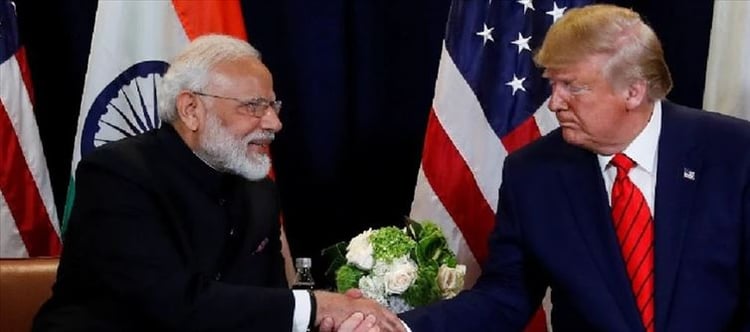
India sends over $390 million worth of coffee, tea, and other drinks to the US each year, in addition to about $2 billion worth of fish and shrimp. Experts concur that imposing a high tariff on US goods from india might cause issues, but it wouldn't be the end of the world.
What is the secret strategy, then?
Looking at New Markets
First, with relations with the US at an all-time low, india is looking to other nations, such as mexico and Canada, for possible growth in its export market. This eliminates the chance for additional compromise and discussion. "We don't see the tariff war as the end of the road," informed sources told india Herald. It's giving us more chances because of competitive products and newer markets."
Indian exports have been steadily increasing, according to data from the national government and the commerce ministry. "India's exports reached $778.21 billion in 2023–2024, marking a historic increase. Compared to $466.22 billion in 2013–2014, this is a 67% increase. India's growing position in international trade is reflected in the increase, which has been fueled by robust export results for both goods and services.
Even the nations to which our exports go have expanded to include those in east Asia, the Middle east, and North and South America. This is one of the government's strategies for expanding into new markets.
Increasing Agricultural Exports to other Markets
According to the sources, the agricultural ministry has not yet evaluated the possible damages and losses if the tariff negotiations do not improve. However, tea, coffee, shrimp, and fish goods make up the majority of our exports to the United States.
India is fighting back with concessions to the US and a concentration on indian brands and electric vehicles, but finished automobiles may suffer. However, agriculture may be a problem area, particularly since it is the backbone of the indian economy and a political issue.
The sources added that india is looking for a quid pro quo from the US, but it will not give up on some items like maize and wheat. This is one of the main reasons india agreed to concessions to the US on certain imports like cashew, pistachio, and cranberries, because they won't harm the nation.
Additionally, the plan calls for expanding agricultural exports to new markets, including Mauritius, the Arab world, Canada, and Mexico. india thinks that this will help to mitigate some of the harm. However, experts contend that since their production is scarce and falls short of some indian products in quality, the US may suffer from a reduction in agricultural imports.
It's a wait-and-watch scenario for now. The ministries of commerce and agriculture will reevaluate the situation and take action on april 2.




 click and follow Indiaherald WhatsApp channel
click and follow Indiaherald WhatsApp channel